
Advertise on podcast: People of the Pod
Rating
4.6 from
Country
This podcast has
315 episodes
Language
Publisher
Explicit
No
Date created
2018/01/24
Average duration
25 min.
Release period
8 days
Description
People of the Pod is a weekly podcast analyzing global affairs through a Jewish lens, brought to you by American Jewish Committee. Host Manya Brachear Pashman examines current events, the people driving them, and what it all means for America, Israel, and the Jewish people.
Podcast episodes
Check latest episodes from People of the Pod podcast
Believe Israeli Women: How to Advocate for Victims of Hamas’ Sexual Violence
2024/02/23
During their murderous rampage across Southern Israel on October 7th, Hamas weaponized sexual violence. Over 138 days later, denial of these crimes runs rampant despite verified evidence and testimony from survivors of the NOVA festival, the attacked kibbutzim, and freed hostages.
Hear from Julie Fishman Rayman, AJC’s Managing Director of Policy and Political Affairs, on the efforts in Congress to stand in solidarity with Israeli victims of Hamas’ sexual violence, and what you can do to make sure the plight of Israeli women is heard.
*The views and opinions expressed by guests do not necessarily reflect the views or position of AJC.
Episode Lineup:
(0:40) Julie Fishman Rayman
Show Notes:
Act:
Urge Congress: Condemn Rape and Sexual Violence by Hamas Terrorists
Listen – People of the Pod on the Israel-Hamas War:
When Antisemites Target Local Businesses: How Communities Are Uniting in Response
How A 10/7 Survivor is Confronting Anti-Israel Activists on College Campuses
Tal Shimony Survived the Hamas Attack on the Nova Music Festival: Hear Her Story of Courage, Resilience, and Remembrance
How to Mark International Holocaust Remembrance Day in a Post-October 7th World
Follow People of the Pod on your favorite podcast app, and learn more at AJC.org/PeopleofthePod
You can reach us at: peopleofthepod@ajc.org
If you’ve appreciated this episode, please be sure to tell your friends, and rate and review us on Apple Podcasts.
Transcript of Interview with Julie Fishman Rayman:
Manya Brachear Pashman:
This week, the Association of Rape Crisis Centers in Israel delivered a report to the United Nations detailing the systemic sexual violence committed by the Hamas terror group during and after the October 7 attack on Israel. The horrific report follows a bipartisan resolution adopted by the US House of Representatives last week, condemning the use of rape and sexual violence. Here to discuss that resolution is AJC’s Managing Director of Policy and Political Affairs Julie Fishman Rayman. Julie, welcome.
Julie Fishman Rayman:
Thank you so much, Manya.
Manya Brachear Pashman:
So anything bipartisan on Capitol Hill is rare and worth discussing. Can you walk our listeners through the details of the resolution and explain why there was such unity around it?
Julie Fishman Rayman:
Absolutely. So the resolution was introduced in January. And it really came out of a concerted effort on the part of mostly female members of Congress, who were hearing about what had gone on on October 7, and what was continuing to go on in Israel as it related to gender based violence and sexual assault.
And they read the tea leaves of the deafening silence on behalf of the global community and said, if people aren't believing Israeli women, we are going to show that Congress, the American Congress, is united in believing Israeli women. So there are two resolutions, in the House and in the Senate, the resolution in the House passed.
And they're pretty straightforward, expressing this sense, both of outrage and outlining some next steps. So in addition to condemning rape, and all forms of sexual violence as a weapon of war by Hamas, calling on nations to criminalize rape and sexual assault and hold perpetrators accountable, including by armed groups, which is somewhat of a different take on this.
Calling on international bodies to really condemn these atrocities in a way that we have seen too many of them pause or hesitate or simply remain silent. Reaffirming the US government support for an independent, impartial investigation —this is very important— into what happened on October 7th and afterwards, and reaffirming this commitment to supporting survivors, which is, I think, so critical in this moment.
It’s one of those things you could say, Oh, of course, we support the survivors. But recognizing the reality of what's going on in Israel today, and how this trauma continues
more
When Antisemites Target Local Businesses: How Communities Are Uniting in Response
2024/02/15
One in five U.S. Jews reported that local businesses where they live have been the target of antisemitism in the past five years, revealed AJC's State of Antisemitism in America 2023 Report, published this week.
To dive deeper into this concerning trend, we spoke with Adam Deutsch who, since October 8, has displayed a “We Stand With Israel Sign” in the window of his Scarsdale, NY ice cream shop. In January, his storefront was spray painted with the words “genocide supporters.” Hear from Deutsch on how his local community rallied against this hateful action and why he’s been even more vocal about his support for the Jewish state and prouder to be Jewish.
*The views and opinions expressed by guests do not necessarily reflect the views or position of AJC.
Episode Lineup:
(0:40) Adam Deutsch
Show Notes:
Listen – People of the Pod on the Israel-Hamas War:
How A 10/7 Survivor is Confronting Anti-Israel Activists on College Campuses
Tal Shimony Survived the Hamas Attack on the Nova Music Festival: Hear Her Story of Courage, Resilience, and Remembrance
How to Mark International Holocaust Remembrance Day in a Post-October 7th World
Follow People of the Pod on your favorite podcast app, and learn more at AJC.org/PeopleofthePod
You can reach us at: peopleofthepod@ajc.org
If you’ve appreciated this episode, please be sure to tell your friends, and rate and review us on Apple Podcasts.
Transcript of Interview with Adam Deutsch:
Manya Brachear Pashman:
The contrast was stark. The words “genocide supporters” scrawled in black spray paint across the windows. On the other side of the glass, giant stuffed animals and pillows embroidered with the abbreviation for I love you so much. This was the scene one morning in January at The Scoop Shop, an ice cream and gift store at a shopping plaza in Scarsdale, New York. The vandals also left their mark on a nearby boutique. Both stores had one thing in common: Jewish owners.
This week, AJC released The State of Antisemitism in America 2023 Report, which for the first time found that one in five American Jews reported local businesses where they live had been the target of antisemitism in the past five years.
With us to talk about the incident in January is the owner of the Scoop Shop, Adam Deutsch.
Adam, welcome to People of the Pod.
Adam Deutsch:
Thank you for having me.
Manya Brachear Pashman:
Adam, if you wouldn't mind walking us through that morning when you discovered the graffiti on your storefront.
Adam Deutsch:
Sure. So my brother actually got a call, we're partners, got a call around 7am rrom the people who do the maintenance in the shopping center. They were with the police who actually noticed the graffiti. So we got a call from them saying that something was written on the store window.
My brother was in the middle of getting ready to drop his kids off at school so he was planning on coming right after that. He called me. And we met over there and they were already starting to clean it off. But at first I couldn't really read what it said. The handwriting was very mishy mashy.
But once we actually saw it, we realized that it was not good. Not like it would have been good anyway, graffiti on the store. But we realized it had something to do with the fact that we supported Israel or that we were Jewish or something along those lines. We weren't positive at first.
Manya Brachear Pashman:
So how did the vandals know to target your business?
Adam Deutsch:
So we have a sign that says We Support Israel with the Israeli flag in our storefront window. I think it was October 8, someone came to the shopping center and asked if we would put it up. We said absolutely. So we've had it up for a few months. A few shops in the shopping center do as well, the other store that was vandalized did also.
So I don't think it had anything to do with the fact that I'm Jewish, necessarily. Because how would
more
How A 10/7 Survivor is Confronting Anti-Israel Activists on College Campuses
2024/02/08
Yoni Diller, a 28-year-old Israeli filmmaker, arrived at the Supernova Music Festival just hours before Hamas terrorists launched their unprecedented attack on Israel that killed 1200 people, including 401 at the music festival alone. Yoni escaped the festival on foot, walking for hours through southern Israel’s desert to safety.
Having survived this harrowing experience, Yoni is now traveling the world to share his story with political leaders, college students, and others, providing firsthand testimony of the horrors he and his fellow festival attendees witnessed on that fateful morning of October 7th.
*The views and opinions expressed by guests do not necessarily reflect the views or position of AJC.
Episode Lineup:
(0:40) Yoni Diller
Show Notes:
Listen – People of the Pod on the Israel-Hamas War:
Tal Shimony Survived the Hamas Attack on the Nova Music Festival: Hear Her Story of Courage, Resilience, and Remembrance
How to Mark International Holocaust Remembrance Day in a Post-October 7th World
A Spider Web of Terror: How Iran’s Axis of Houthis, Hezbollah, and Hamas Threaten Israel and America
Follow People of the Pod on your favorite podcast app, and learn more at AJC.org/PeopleofthePod
You can reach us at: peopleofthepod@ajc.org
If you’ve appreciated this episode, please be sure to tell your friends, and rate and review us on Apple Podcasts.
Transcript of Interview with Yoni Diller:
Manya Brachear Pashman:
During the Grammys this past Sunday, Recording Academy CEO Harvey Mason Jr. remembered the 401 people murdered and 40 kidnapped by Hamas terrorists during the October 7 attack on the Nova Music Festival.
Yoni Diller is a 28-year-old filmmaker from Ra’anana, a town outside Tel Aviv. Yoni and his friend Nadav arrived at the Supernova Music Festival just a few hours before rockets began flying overhead. At daybreak, he had expected to send up a drone camera to capture the scene of unadulterated song and dance in the desert. But he never got the chance to get his camera ready. Yoni is with us now to describe that harrowing day that started at dawn. Yoni, welcome to People of the Pod.
Yoni Diller:
Thank you for having me.
Manya Brachear Pashman:
Could you please walk us through what you saw that morning?
Yoni Diller:
So, when the sirens went on at 6:30, we saw hundreds of missiles heading our way. So we rushed back to our campsite. We packed up our stuff, we tried to leave, the parking lot was chaotic. And I suggested going a different way. This decision to head south towards Re’im, which is another village. I didn't think it would change or it will change everything, but it did. On the road, people originally told us to turn around, to do a u-turn.
Manya Brachear Pashman:
You told me earlier that was when a car riddled with bullet holes approached you and you found yourself helping a wounded women. That was 25 year old Shani Gabay whose remains were identified seven weeks later. At that time, when you were helping her, you heard gunfire in the distance and you tried to take cover in a nearby valley.
Yoni Diller:
Yes. I saw terrorists from a distance and continued to hide. A short moment later, mass shooting started in the Be’eri area, north of us. I checked my phone to assess our surroundings and our current location. At the same time, my friend's sister called him to check on him to check everything's okay. He promised everything's gonna be alright. And about that time about a dozen others had joined us and we start walking. But the best thing I could do at that moment is to scream for everyone to get down because bullets are flying up on top of our head.
So when the gunshots stop for a second, we decided to head towards Patish, it was more than 24 kilometers away. My intuition told me that this will be safer there.
Manya Brachear Pashman:
Did you just say 24 kilometers away? How did you make it through an almost 15-mile walk?
more
Tal Shimony Survived the Hamas Attack on the Nova Music Festival: Hear Her Story of Courage, Resilience, and Remembrance
2024/02/02
Dancing. Costumes. Music. Rockets. Running. Chaos.
At 6:29 am on the morning of October 7, Tal Shimony went from dancing in a field outside the Southern Israeli kibbutz of Re’im at the Supernova Music Festival to running for her life as the site was attacked by Hamas terrorists. Tal guides us through the horrors she witnessed that morning, and the exhibit 'Nova 6.29,' where the community aims to tell their story and honor those killed and taken hostage, in the deadliest attack on a music event in history.
*The views and opinions expressed by guests do not necessarily reflect the views or position of AJC.
Episode Lineup:
(0:40) Tal Shimony
Show Notes:
Song credits: Clear Test Signal Artifex Remix - Nova Tribute
Learn more: Tribe of Nova
Listen – People of the Pod on the Israel-Hamas War:
How to Mark International Holocaust Remembrance Day in a Post-October 7th World
A Spider Web of Terror: How Iran’s Axis of Houthis, Hezbollah, and Hamas Threaten Israel and America
Unpacking South Africa’s Baseless Genocide Charge Against Israel
Countering the Denial and Distortion of the 10/7 Hamas Attack
Follow People of the Pod on your favorite podcast app, and learn more at AJC.org/PeopleofthePod
You can reach us at: peopleofthepod@ajc.org
If you’ve appreciated this episode, please be sure to tell your friends, and rate and review us on Apple Podcasts.
Transcript of Interview with Tal Shimony:
Manya Brachear Pashman:
More than 3000 people were at the Supernova Music Festival that began on Friday night October 6, and was meant to last through the next day. But at 6:29 am on October 7, it came to an end. In the horrific hours that followed, more than 400 people were killed and more than 40 kidnapped by Hamas terrorists.
Survivors organized an exhibit at the Tel Aviv Expo to tell their story. ‘Nova 6.29’ is named for the moment when rockets began falling on the tribe of Nova desert rave. During an AJC Project Interchange Fact Finding Delegation to Israel in December 2023, my colleagues met survivor and organizer Tal Shimony. After hearing her story, we wanted you to meet her too.
Tal, welcome to People of the Pod.
Tal Shimony:
Thank you so much for inviting me, it means a lot for me and also for my tribe.
Manya Brachear Pashman:
So before we begin, I'm hoping you can kind of help our audience understand your tribe and understand just what the tribe of Nova or trance culture is, and what were people celebrating that morning?
Tal Shimony:
Yeah, of course, I will explain to the audience about trance culture and who we are. It's named after music, electronic music. What's very interesting about this music, it came to Israel around the 80s from the area of India, and very soon became a very popular culture here and a very big scene here in Israel.
Every weekend, we have around 20 parties that are happening in nature, that are celebrating this culture. The trance culture is connected in a way to the more liberal and free culture, connected to the yoga world. Which means it's a very global and international thing. We're speaking about love and peace.
In all of the international trance festivals, it's not very much allowed to bring national flags. You're not allowed to bring flags of your own country. You can bring flags that are stating a peace of love or stuff that are representing your group of friends, but nothing that is representing anything national. The aim is to do a community that has no judgment. That everyone can join it. If you're a good person, and you love nature, and you love humankind, and you love the music, you can join. And that's the Nova tribe’s main values. These are the things that we are standing for.
And the gap between what happened to us at 6:29 that morning, and of course, the whole day after, because it's not just that moment that was horrible. It was the whole day after it and of course, until now it's still going on. And
more
How to Mark International Holocaust Remembrance Day in a Post-October 7th World
2024/01/25
This week, Mark Weitzman from the World Jewish Restitution Organization, joins us to discuss the links between the October 7 Hamas attack on Israel and the Holocaust, and how Holocaust museums worldwide and in Israel are grappling with the aftermath. As International Holocaust Remembrance Day approaches, we also delve into the direct connection between Holocaust denial and distortion to the denial and distortion of October 7 events, and how both are rooted in antisemitism.
*The views and opinions expressed by guests do not necessarily reflect the views or position of AJC.
Episode Lineup:
(0:40) Mark Weitzman
Show Notes:
Learn:
AJC’s Translate Hate Glossary: See why Holocaust denial / distortion is antisemitic.
Listen – People of the Pod on the Israel-Hamas War:
A Spider Web of Terror: How Iran’s Axis of Houthis, Hezbollah, and Hamas Threaten Israel and America
Unpacking South Africa’s Baseless Genocide Charge Against Israel
Countering the Denial and Distortion of the 10/7 Hamas Attack
4-Year-Old Hostage Abigail Idan is Free–Her Family is On a Mission to #BringThemAllHome
Follow People of the Pod on your favorite podcast app, and learn more at AJC.org/PeopleofthePod
You can reach us at: peopleofthepod@ajc.org
If you’ve appreciated this episode, please be sure to tell your friends, and rate and review us on Apple Podcasts.
Transcript of Interview with Mark Weitzman:
Manya Brachear Pashman:
One could easily say the October 7 Hamas invasion and massacre in Israel is one of the most well-documented terrorist attacks in history. Dozens of smartphone cameras and GoPros filmed Hamas terrorists crossing the border between Gaza and southern Israel murdered more than 1000 soldiers and civilians and kidnapped more than 200 others, the deadliest antisemitic attack since the Holocaust. But just like the scourge of Holocaust denial, October 7th denial is growing.
Mark Weitzman is the chief operating officer of the World Jewish Restitution Organization, a nonprofit that pursues claims for the recovery of Jewish properties lost during World War Two.
He's also the lead author of the working definition of Holocaust denial and distortion for the International Holocaust Remembrance Alliance known as IHRA, and chairs the IHRA Working Group on museums and memorials.
As we approach International Holocaust Remembrance Day, Mark has joined us to discuss how we can make sure the world does not forget or deny any atrocities committed against Jews.
Mark, welcome to People of the Pod.
Mark Weitzman:
Thank you very much for the invitation to be here.
Manya Brachear Pashman:
Mark, you are an expert on Holocaust denial and distortion. What does it have in common with the denial we’re seeing around October 7?
Mark Weitzman:
I think there are clear connections between people who are downplaying or distorting the events of October 7, and those that engage in Holocaust distortion or hardcore Holocaust denial, because both are linked by an attempt to try to explain what is for them an uncomfortable historical reality that targeted Jews, whether the Holocaust or the events of October seventh, to justify their preconceived political agenda, which often includes an antisemitic conspiracy theory, either as its base or as its method to achieve their goals.
One of the root causes of Holocaust denial distortion, from the antisemitic perspective, is the attempt to say that since the Holocaust, there is a certain sympathy for Jews as victims, and sometimes that turns into political sympathy or support for the State of Israel. Sometimes it turns into actions that are pro-democracy or anti-racist in terms of society and saying that we've seen what happened in Auschwitz, we don't want our society to go in that direction. So we're going to take certain positive steps. Those people who want to turn the clock back to a world where people could still be judged by their religion, their race
more
A Spider Web of Terror: How Iran’s Axis of Houthis, Hezbollah, and Hamas Threaten Israel and America
2024/01/19
This week President Biden re-designated Yemen’s Houthis as a global terrorist group amid its increasing attacks on international shipping in the Red Sea. Meanwhile, in Lebanon, the Hezbollah terror group continues to threaten Israel's northern border, and the Israel-Hamas war continues as Hamas still holds more than 100 Israeli hostages taken on 10/7.
Matthew Levitt, Fromer-Wexler Fellow & Director of the Reinhard Program on Counterterrorism and Intelligence at the Washington Institute, joins us to help make sense of the renewed terror threat, how these terror groups are coordinating their strategy and attacks, and what the U.S., Israel, and its allies are doing to fight back against Iran and its terror proxies.
*The views and opinions expressed by guests do not necessarily reflect the views or position of AJC.
Episode Lineup:
(0:40) Matthew Levitt
Show Notes:
Learn: 5 Things to Know About the Houthis, Their Attacks on Israel and the U.S., and Their Treatment of Yemen’s Jews
Listen – People of the Pod on the Israel-Hamas War:
Unpacking South Africa’s Baseless Genocide Charge Against Israel
Countering the Denial and Distortion of the 10/7 Hamas Attack
4-Year-Old Hostage Abigail Idan is Free–Her Family is On a Mission to #BringThemAllHome
What Would You Do If Your Son Was Kidnapped by Hamas? Follow People of the Pod on your favorite podcast app, and learn more at AJC.org/PeopleofthePod You can reach us at: peopleofthepod@ajc.org
If you’ve appreciated this episode, please be sure to tell your friends, and rate and review us on Apple Podcasts.
Transcript of Interview with Matthew Levitt:
Manya Brachear Pashman:
This week the US military struck a Houthi arsenal in Yemen that had threatened US Navy vessels in the Red Sea. It was America's fourth strike on Houthi turf since November 19. Meanwhile, the Hezbollah terror group continues to violate a UN Security Resolution and threaten Israel's border, and Hamas still holds more than 100 Israeli hostages taken during the October 7th invasion and massacre.
What do all these terror groups have in common? Returning here to discuss is Matthew Levitt, the Fromer-Wexler Fellow & Director of the Reinhard Program on Counterterrorism and Intelligence at the Washington Institute.
Matt, welcome back to People of the Pod.
Matthew Levitt:
Thank you so much for having me.
Manya Brachear Pashman:
So let's start with the terror group making the latest headlines. The Houthis? Who are they and why has the Biden administration just re-designated them a terrorist organization?
Matthew Levitt:
So the Houthis are a separatist group in Yemen, based in the north of the country. They are Shia, and they get support from Iran. But they're not exactly the same kind of Shia as Iran. And they aren't exactly the kind of proxy that says jump when Iran says how high.
This is a relationship of convenience and my enemy's enemy. And they both hate the United States and the west and hate Israel. And the Houthis have been for years an ineffective, and for the Iranians an inexpensive and risk free way to complicate things for the Saudis. So for years, the Houthis were shooting at the Saudis when the Saudis were involved in the Yemeni war, after the Houthis had taken over.
And that's one of the reasons why things are a little sensitive right now, because there have been efforts to try and negotiate a ceasefire between the Houthis and the Saudis. The Saudis aren't happy with what the Houthis are doing right now in the Red Sea. But they also don't want to rock the boat.
The Houthis have as part of their mantra printed on their flag, Death to Israel, Death to America, Death to Jews, all three, they're not particularly, you know, unclear. And so they have flown drones towards Israel that have been shot down, they have fired ballistic missiles at Israel, some of which have been shut down by US Navy vessels, at least one was shut down by the
more
Unpacking South Africa’s Baseless Genocide Charge Against Israel
2024/01/11
The International Court of Justice is currently hearing South Africa's case accusing Israel of genocide in Gaza. Professor Geoffrey Corn from Texas Tech University joins us to explain how we got here, the case’s significance, and why the claims of genocide are baseless.
*The views and opinions expressed by guests do not necessarily reflect the views or position of AJC.
Episode Lineup:
(0:40) Geoffrey Corn
Show Notes:
Explainer: What You Need to Know about South Africa’s Baseless Genocide Accusation Against Israel
Go Deeper: 5 Reasons Why the Events in Gaza Are Not “Genocide”
Listen – People of the Pod on the Israel-Hamas War:
Countering the Denial and Distortion of the 10/7 Hamas Attack
4-Year-Old Hostage Abigail Idan is Free–Her Family is On a Mission to #BringThemAllHome
What Happens Next: AJC’s Avital Leibovich on the Hostage Deal and Challenges Ahead What Would You Do If Your Son Was Kidnapped by Hamas? Follow People of the Pod on your favorite podcast app, and learn more at AJC.org/PeopleofthePod You can reach us at: peopleofthepod@ajc.org
If you’ve appreciated this episode, please be sure to tell your friends, and rate and review us on Apple Podcasts.
Transcript of Interview with Geoffrey Corn:
Manya Brachear Pashman:
The International Court of Justice is holding its first hearings in a case filed by South Africa, accusing Israel of committing genocide against Palestinians in Gaza. While it could take years for the panel of judges to rule on the genocide accusation, South Africa has asked the judges to issue a restraining order of sorts in the coming weeks that could among other things, call on Israel to halt its effort to root out Hamas and bring home the remaining hostages, at least until a verdict is reached. Here to explain what's at stake and the questions that the court will need to weigh is Professor Geoffrey Corn, Director of the Center for Military Law and Policy at Texas Tech University. Professor Corn. Welcome to People of the Pod.
Geoffrey Corn:
Thank you for having me.
Manya Brachear Pashman:
So you are an expert in international humanitarian law and the law of war, which to some those terms might seem contradictory, or are the? Are they actually one in the same?
Geoffrey Corn:
No, they refer to the identical branch of international law, historically, we call this branch of law, the laws and customs of war. Before the end of World War II, it was referred to as the law of war. And then, of course, with the advent of the United Nations Charter, technically war was prohibited. And states engaged in armed conflicts.
And so the name evolved for many years to be referred to as the law of armed conflict, the Loack, that's still what it's called. And in official US circles, we have the Department of Defense law of war manual, and the army law of armed conflict manual, most of the world today refers to it as international humanitarian law. And that, as you know, it can be misleading because it suggests that it's really focused on human rights. In fact, IHL, or international humanitarian law is a synonym for the law of armed conflict. It's the law that regulates the conduct of hostilities, during conflicts between states or between states and non-state groups, and protects victims of war.
Manya Brachear Pashman:
So let's cover another basic distinction or definition that will help listeners decipher all of this, the charges that I spoke of in the introduction, they had been brought in the International Court of Justice. And now that's the 15 judge panel of the United Nations.
Not the International Criminal Court, which is also in The Hague, but charges individuals with war crimes. So can you explain for our audience the purpose of the International Court of Justice?
Geoffrey Corn:
Sure, the International Court of Justice is part of the mosaic of the Charter of the United Nations, a treaty that was created in the aftermath of W
more
Countering the Denial and Distortion of the 10/7 Hamas Attack
2023/12/28
Since October 7, the USC Shoah Foundation has added a new component to its mission: collecting the testimonies of those who survived the worst antisemitic attack since the Holocaust to counter those who deny it took place.
Dr. Robert Williams, Executive Director of the USC Shoah Foundation, joins us to discuss the history and tendency to deny atrocities committed against Jews, the importance of collecting testimonies, and how they help in understanding antisemitism in all its forms.
*The views and opinions expressed by guests do not necessarily reflect the views or position of AJC.
Episode Lineup:
(0:40) Belle Yoeli
(1:44) Robert Williams
Show Notes:
Take action to bring all hostages home now.
To support our work today, you can visit AJC.org/donate. Or text AJC DONATE to 52886.
Learn more:
USC Shoah Foundation: Survivors of the October 2023 Hamas Terrorist Attacks
Testimony of Shaylee Atary Winner
Testimony of Maor Moravia
The Testimonies Archive
The Testimonies Archive
Listen – People of the Pod on the Israel-Hamas War:
4-Year-Old Hostage Abigail Idan is Free–Her Family is On a Mission to #BringThemAllHome
What Happens Next: AJC’s Avital Leibovich on the Hostage Deal and Challenges Ahead What Would You Do If Your Son Was Kidnapped by Hamas? Follow People of the Pod on your favorite podcast app, and learn more at AJC.org/PeopleofthePod
You can reach us at: peopleofthepod@ajc.org
If you’ve appreciated this episode, please be sure to tell your friends, and rate and review us on Apple Podcasts.
Transcript of Interview with Robert Williams:
Manya Brachear Pashman:
Since the Hamas terror attacks on Israel on October 7, the Shoah Foundation has added a new component to its mission: collecting the testimonies of those who survived the worst antisemitic attack since the Holocaust to counter those who have dare to deny it took place.
Dr. Robert Williams is the Advisor to the International Holocaust Remembrance Alliance, where he served for four years as chair of the Committee on Antisemitism and Holocaust Denial. In October 2022, he became the Executive Director of the USC Shoah Foundation. Dr Williams is with us now to discuss the history and tendency to deny atrocities, in this case, those committed against Jews. Thank you for joining us.
Dr. Williams, if you could begin by explaining to listeners what Holocaust denial is, and how it's similar or different from Holocaust trivialization and distortion.
Robert Williams:
Holocaust denial is a little easier for us to wrap our heads around, for better or worse. Holocaust deniers are essentially trying to tell people that the Holocaust didn't happen for one of two reasons. The most obvious reason is because they're antisemitic, they want to tell people that the Jewish Diaspora writ large has come together to invent this grand conspiracy to pull the wool over the eyes of non-Jews for all manner of dastardly purposes. So that's the first reason.
The second reason is also antisemitic, although in a slightly different way. That is to rehabilitate national socialism as an acceptable ideology. No matter which way you slice that cake, it still ends up being antisemitism. That's why, to echo the words of people like Deborah Lipstadt, and others: Holocaust denial is antisemitism. Full stop. And it's a problem. It's something we need to deal with. But in our parts of the world, roughly speaking, the northern hemisphere, the West, it's become fortunately a bit of a microphenomenon over the last couple of decades.
The bigger problem is the second part of your question: Holocaust distortion, and I use the terms trivialization and distortion interchangeably. I prefer to use distortion. But Holocaust distortion is in essence, rhetoric that minimizes, confuses, or otherwise misrepresents the Holocaust, both as something factual, and something that has relevance today.
And that can take on a variety of forms, it ca
more
4-Year-Old Hostage Abigail Idan is Free–Her Family is On a Mission to #BringThemAllHome
2023/12/21
Four-year-old Abigail Mor Idan, the youngest U.S. citizen who was kidnapped and held by Hamas, returned home during a pause in fighting in November. But the whereabouts and well-being of 129 hostages are still unknown.
Abigail’s great-aunt, Liz Hirsh Naftali, joins us to recount her family’s harrowing story – including the murder of Abigail’s parents – and her relentless effort to bring the remaining captives home to their loved ones.
*The views and opinions expressed by guests do not necessarily reflect the views or position of AJC.
Episode Lineup:
(0:40) Shay Avshalom Zavdi
(1:32) Liz Hirsh Naftali
Show Notes:
Take action to bring all hostages home now.
To support our work today, you can visit AJC.org/donate. Or text AJC DONATE to 52886.
Listen – People of the Pod on the Israel-Hamas War:
What Happens Next: AJC’s Avital Leibovich on the Hostage Deal and Challenges Ahead What Would You Do If Your Son Was Kidnapped by Hamas? The Good, the Bad, and the Death Threats: What It’s Like to Be a Jewish College Student Right Now Follow People of the Pod on your favorite podcast app, and learn more at AJC.org/PeopleofthePod
You can reach us at: peopleofthepod@ajc.org
If you’ve appreciated this episode, please be sure to tell your friends, and rate and review us on Apple Podcasts.
Transcript of Interview with Liz Hirsh Naftali:
Manya Brachear Pashman:
One hundred twenty-nine hostages taken from Israel by Hamas during the October 7 attack are still unaccounted for. Israeli Prime Minister Benjamin Netanyahu has said the effort to root out Hamas from Gaza will continue until every hostage returns home.
With us to discuss how her family is carrying both tremendous loss and tremendous gratitude for the return of one of their youngest family members, is Liz Hirsh Naftali. Naftali’s great niece 4-year-old Abigail Mor Idan returned to her siblings on November 26. Hamas terrorists killed Abigail’s parents.
Liz, who lives in New York, joins us from Israel where she has been spending time with her family and advocating for the release of the remaining hostages. Liz, welcome to People of the Pod.
Liz Hirsh Naftali:
Hi, thank you for having me.
Manya Brachear Pashman:
Your family members were living on a kibbutz a half mile from Gaza. How did you hear about their fate?
Liz Hirsh Naftali:
First, I have two nieces with families that lived on the kibbutz, and my sister in law and her husband. My sister Mara has lived on this kibbutz Kfar Aza for over 50 years. And they raised four children and two of the children stayed, my two nieces. So on October 7, I happened to arrive on October 6 to Israel because my daughter lives in Tel Aviv.
And I was coming to spend a week with her. And I was in my hotel early on the seventh when the sirens started, and we ran to the stairwell for shelter. And after like the second or third time very early in the morning, around 9, I started to hear there was something happening at the Gaza-Israel border. And so I called my sister in law who didn't answer and then I called another sister that lived on this kibbutz. And then I called another sister in law in Tel Aviv.
And she said, the first thing she said was that my niece and her husband and their baby Abigail had been killed by Hamas terrorists. That was what I first learned. And basically, that's the news we had all day. And it came from the 6 and the 10 year old sister and brother, who were in the house when Hamas terrorists came in and murdered my niece. Then they went outside, and they’re with their father and he was holding Abigail, their three year old, and they went to run for safety.
And Hamas terrorists shot and killed her husband, my nephew. The six and 10 year old thought that their little sister and the father both were killed. So they went back to their house, they locked themselves in a closet for 14 hours. And really, the news that we got that day was from a six and a
more
The Fallout from the University Presidents Congressional Hearing: What Does it Mean for Jewish Students?
2023/12/14
As American colleges and universities struggle to foster discussions about the war between Israel and Hamas that don't veer into antisemitism and misinformation, three university presidents testified on Capitol Hill about the current state of Jew-hatred on college campuses. However, their testimony drew widespread outrage over their refusal to condemn calls for genocide against Jewish students. AJC Director of Academic Affairs Dr. Sara Coodin, and AJC Director of Contemporary Jewish Life, Dr. Laura Shaw Frank join us to break down the fallout and give us a broader view of how university leaders are handling this situation.
*The views and opinions expressed by guests do not necessarily reflect the views or position of AJC.
Episode Lineup:
(0:40) Avital Leibovich
(1:44) Sara Coodin, Laura Shaw Frank
Show Notes:
Take action to bring all hostages home now.
AJC has been working nonstop to support Israel, combat antisemitism, and safeguard Jewish communities worldwide. To support our work today, you can visit AJC.org/donate. Or text AJC DONATE to 52886.
Listen – People of the Pod on the Israel-Hamas War:
Global Antisemitism Report Part 2: The Impact of the Hamas-Israel War in Germany, Asia, and the Arab Gulf Global Antisemitism Report Part 1: What It’s Like to Be Jewish in Europe, Latin America, and South Africa Right Now What Happens Next: AJC’s Avital Leibovich on the Hostage Deal and Challenges Ahead What Would You Do If Your Son Was Kidnapped by Hamas? The Good, the Bad, and the Death Threats: What It’s Like to Be a Jewish College Student Right Now Learn:
AJC Campus Library: Resources for Becoming a Strong Jewish Student Advocate
Follow People of the Pod on your favorite podcast app, and learn more at AJC.org/PeopleofthePod
You can reach us at: peopleofthepod@ajc.org
If you’ve appreciated this episode, please be sure to tell your friends, and rate and review us on Apple Podcasts.
Transcript of Interview with Sara Coodin and Laura Shaw Frank:
Manya Brachear Pashman:
Since the horrific October 7 terrorist attack on Israel by Hamas and the start of Israel's counter offensive, American colleges and universities have been struggling to encourage fact based debates and demonstrations that don't veer into antisemitism and misinformation. University presidents have issued and reissued statements that originally missed the mark, and presidents from three of the nation's top universities appeared on Capitol Hill for congressional inquiry that led one to resign and put another in jeopardy. Here to discuss that inquiry and give us a broader view of how university leaders are handling this crisis is Dr. Sara Coodin, AJC’s Director of Academic Affairs, and Dr. Laura Shaw Frank, AJC's Director of Contemporary Jewish Life.
Laura, Sara, welcome to People of the Pod.
Sara Coodin:
Thank you.
Manya Brachear Pashman:
I want to start with the testimonies by three university presidents last week: Claudine Gay at Harvard, Elizabeth McGill at the University of Pennsylvania and Sally Kornbluth at MIT. Since that, since their appearance on Capitol Hill, President McGill has resigned. And President Gay has survived a debate over whether to oust her from Harvard. For those listeners who didn't follow those hearings, Sara, you were there, right? Can you summarize for us what happened?
Sara Coodin:
I was there, and I have to say I was really quite surprised that it went on for as long as it did. There were close to six hours from start to finish. And the kind of publicity that followed over their inability, all three of them to respond to those very pointed and basic questions by Representative [Elise] Stefanik, really happened in the 11th hour. And there was a lot that happened before. There were a lot of important questions and points that were raised before that kind of pivotal moment in the hearings. So I just want to say that, because for those of us who were sitting in the
more
Global Antisemitism Report Part 2: The Impact of the Hamas-Israel War in Germany, Asia, and the Arab Gulf
2023/12/06
“I cannot recall a moment where we have seen this kind of openly expressed antisemitism.” Dr. Remko Leemhuis, AJC Berlin Director, sums up the state of antisemitism in Germany post-October 7 with this chilling statement. Hear from Leemhuis, along with Asia Pacific Institute (API) Assistant Director Hana Rudolph, and AJC Abu Dhabi Director Marc Sievers, on how the October 7 Hamas massacre of Israelis has impacted Jews in Germany, Asia, the Pacific Islands, and the United Arab Emirates.
*The views and opinions expressed by guests do not necessarily reflect the views or position of AJC.
Episode Lineup:
(0:40) Hana Rudolph
(7:18) Remko Leemhuis
(15:20) Marc Sievers
Show Notes:
Take action to bring all hostages home now.
Listen – People of the Pod on the Israel-Hamas War:
Global Antisemitism Report Part 1: What It’s Like to Be Jewish in Europe, Latin America, and South Africa Right Now What Happens Next: AJC’s Avital Leibovich on the Hostage Deal and Challenges Ahead What Would You Do If Your Son Was Kidnapped by Hamas? The Good, the Bad, and the Death Threats: What It’s Like to Be a Jewish College Student Right Now Mai Gutman Was Supposed to Be at the Music Festival: IDF Lone Soldier Recounts Harrowing Week Responding to Hamas Terror: IsraAID CEO on How You Can Help Israelis Right Now Learn:
Debunking the False Equivalency Between Israeli Hostages and Palestinian Prisoners
How much do you know about Hamas? Try to ace our quiz and expose the truth about the terror group today.
Follow People of the Pod on your favorite podcast app, and learn more at AJC.org/PeopleofthePod
You can reach us at: peopleofthepod@ajc.org
If you’ve appreciated this episode, please be sure to tell your friends, and rate and review us on Apple Podcasts.
Transcript of Interview with Hana Rudolph, Remko Leemhuis, and Marc Sievers:
Manya Brachear Pashman:
American Jewish Committee has 14 international offices around the world. This week, we checked in with some of those offices to learn what they're seeing and hearing on the ground since the October 7 Hamas terrorist attack on Israel. In an earlier installment, we took you to Europe, Africa, and Latin America. Our journey continues today in Asia, Berlin, and Abu Dhabi.
We started in South and East Asia, and the Pacific Islands. Since the director of the Asia Pacific Institute (API) [Shira Loewenberg] was en route to Indonesia, we caught up with Assistant Director Hana Rudolph.
Hana, let's start with Indonesia, a predominantly Muslim country, the country with the world's largest Muslim population. In fact, where AJC has made tremendous inroads in recent years engaging with faith and political leaders. What has the response to the October 7 attacks been there?
Hana Rudolph:
The Indonesian government doesn't have ties with Israel, though it does support a two state solution. So we don't expect there to be a vocal kind of support for Israel. But the anti semitism and the conspiracy theories, the false narratives happen incredibly alarming. There was a rally on November 5, a pro Palestinian rally, and rally organizers think that there were 2 million people who turned out for that. So we're talking huge numbers.
The prevailing narrative there is really that Israel is the indiscriminate aggressor, they are just killing women and children for no reason in Gaza. There's very little mention of Hamas’ massacre on October 7, and that's the narrative.
AJC has taken several delegations of Indonesians to Israel for our Project Interchange. A lot of our alumni had been receiving death threats. And we're not talking about death threats for posts that they're actively making right now in support of Israel. We're talking about death threats because, you know, some long time ago, when they were on this delegation, they posted something that was seen as something pro-Israel, and now they're receiving this kind of pushback and hate and condemnat
more
Global Antisemitism Report Part 1: What It’s Like to Be Jewish in Europe, Latin America, and South Africa Right Now
2023/12/04
Following Hamas’ October 7 massacre of Israelis Jews around the world have experienced a surge of antisemitism. We checked in with some of AJC’s global experts to learn what they’ve been seeing and hearing on the ground and to understand what efforts are underway to protect Jews and counter this hate. In the first of two installments, we hear from AJC Europe Managing Director Simone Rodan Benzaquen, AJC Africa Director Wayne Sussman, and Dina Siegel Vann, Director of AJC’s Belfer Institute on Latin American Affairs.
Take action to bring all hostages home now.
*The views and opinions expressed by guests do not necessarily reflect the views or position of AJC.
Episode Lineup:
(0:40) Simone Rodan Benzaquen
(7:09) Wayne Sussman
(14:54) Dina Siegel Vann
Show Notes:
Listen – People of the Pod on the Israel-Hamas War:
What Happens Next: AJC’s Avital Leibovich on the Hostage Deal and Challenges Ahead What Would You Do If Your Son Was Kidnapped by Hamas? The Good, the Bad, and the Death Threats: What It’s Like to Be a Jewish College Student Right Now Mai Gutman Was Supposed to Be at the Music Festival: IDF Lone Soldier Recounts Harrowing Week Responding to Hamas Terror: IsraAID CEO on How You Can Help Israelis Right Now Learn:
Debunking the False Equivalency Between Israeli Hostages and Palestinian Prisoners
How much do you know about Hamas? Try to ace our quiz and expose the truth about the terror group today.
Follow People of the Pod on your favorite podcast app, and learn more at AJC.org/PeopleofthePod
You can reach us at: peopleofthepod@ajc.org
If you’ve appreciated this episode, please be sure to tell your friends, and rate and review us on Apple Podcasts.
Transcript of Interview with Simone Rodan Benzaquen, Wayne Sussman, and Dina Siegel Vann:
Manya Brachear Pashman: American Jewish Committee has 14 international offices around the world. For today’s episode, we checked in with some of those offices to learn what they're seeing and hearing on the ground since the October 7 Hamas terrorist attack on Israel. Today, we take you to Europe, Africa and Latin America. We start in Paris, where years of work to combat rising antisemitism has seen a serious setback.
For more than two decades, since the Second Intifada, antisemitism has been on the rise on the European continent. In fact, it was that ripple effect that prompted AJC to ramp up its advocacy there. AJC Managing Director of Europe Simone Rodan Benzaquen joined us from Paris.
Simone Rodan Benzaquen: What we have seen, I think, in Europe is more or less what we've seen, everywhere, what can only be described as an explosion of antisemitism across the European continent, I would say, mostly in Western Europe, here in France in particular, but also in the United Kingdom, we have seen the same. In Germany, we have seen similar things going on in Sweden and Denmark. But of course, here in France, where antisemitism has existed for at least two decades, or at least this contemporary form of antisemitism, for the past two decades with high numbers of antisemitic hate crimes. The situation is very, very serious. We've had basically three times the number of antisemitic hate crimes, since October 7 of what we had during the entire year, last year.
We have desecration of cemeteries, we have antisemitic tags. We have intimidation, we have spitting on people. It is as if the sheer horror, the violence that happened on October 7, unleashed an antisemitic passion, an antisemitic violence across the world. As if the horrible images that were filmed by the Hamas terrorists on October 7 sort of was a legitimization.
Manya Brachear Pashman: So what does that mean for the Jewish community and daily life?
Simone Rodan Benzaquen: We’ve reached a point where people are hiding every single aspect of their Jewish identity. People are changing their names on their delivery apps, people are changing their names on thei
more
Podcast reviews
Read People of the Pod podcast reviews
Professor R. Hinkley
2024/01/26
Great podcast in Jewish issues, antisemitism, Israel and current events
The host’s accent always makes me chuckle (being that I’m a NYer of course…).
This podcast always makes me smile and discusses serious issues related...
more
E Shamai
2022/08/10
Excellent Podcast Series! The Forgotten Exodus
Your new series, The Forgotten Exodus, is so interesting and well done. The stories of Jews that lived in Arab lands are stories that need to be told....
more
MrsBloom21
2021/12/04
Highly recommend!
I love this podcast because I always learn something. A good one for us Jews and our allies!
RebKahl
2021/08/06
Really insightful and informative!
Excellent dialogue and interviews by the hosts. Always interesting guests and very informative. Best pf luck to Seffi as he heads to Yale!
ThatGoofyGuy
2021/08/12
Good source for the latest jewish news
The podcast is pretty straightforward in explaining some of the biggest headlines in jewish news. It also runs interviews with various figures from th...
more
jonn_msft
2021/03/17
House organ of AJC
Focused on anti-Semitism around the world. High production values.
Jay stormer
2020/08/11
So insightful
Thank you for making these! They offer an interesting perspective on today’s world from a Jewish lens. Listening makes me think more and more about my...
more
hekdbejjdnr
2020/08/07
These podcasts are all amazing. I love listening!
they’re very thought provoking.
Real-time dude
2020/05/06
I wish I found this earlyer
Wow just listened to podcast with Natan Sheransky Im mind blown
GlobalGalSB
2020/02/19
My favorite podcast.
Its always interesting and I learn so much.
Podcast sponsorship advertising
Start advertising on People of the Pod & sponsor relevant audience podcasts
You may also like these judaism Podcasts

4.6
154
315
People of the Pod
American Jewish Committee (AJC)
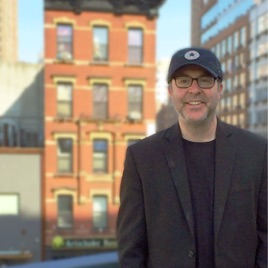
4.8
68
841
Spiritual Tools for an Outrageous World
David Sacks
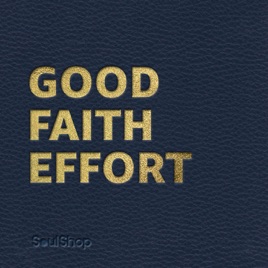
5
329
114
Good Faith Effort
SoulShop
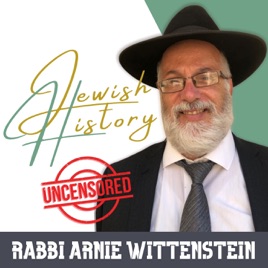
4.8
29
180
Jewish History Uncensored
Rabbi Arnie Wittenstein
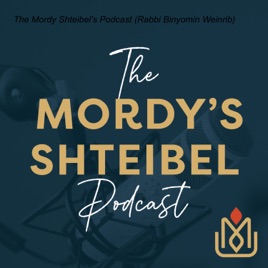
5
49
999
The Mordy Shteibel's Podcast (Rabbi Binyomin Weinrib)
mordyshteibel
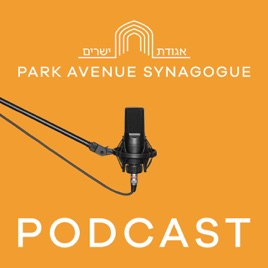
4.6
54
100
Park Avenue Synagogue Podcast
Park Avenue Synagogue
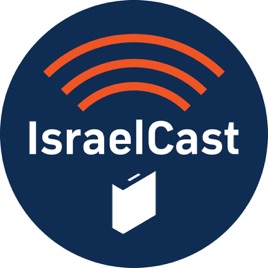
5
103
100
IsraelCast
Jewish National Fund
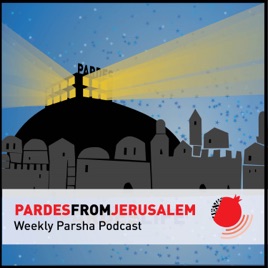
4.8
181
300
Pardes from Jerusalem
Pardes Institute of Jewish Studies
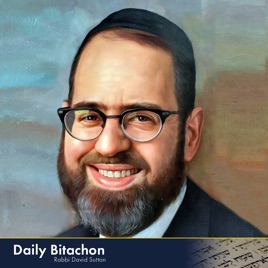
5
3
26
Daily Bitachon
Rabbi David Sutton

4.9
37
120
Best Book Ever
Rabbi David Kasher



